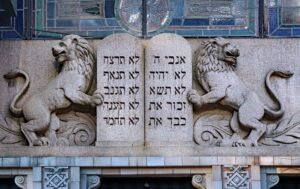How religious public schools went from a long shot to the Supreme Court
The proposal was the most audaciousRobert Franklin had seen during hisfour decades in education: The Catholic Archdiocese of Oklahoma City wanted to create the nation’s first religious,taxpayer-funded public charter school.
Franklin, who chaired a state board responsible for approving new charter schools, saw the idea as patently illegal and an obvious assault on the separation of church and state. Oklahoma would be directly sponsoring — and paying for— a school that promises to inject religion into every aspect of its teachingand expect students “to adhere” to its beliefs.
He was sure the idea would quickly die.
But this was a proposal aimed well beyond one tiny charter school for rural Oklahoma. It was part of a careful legal and political strategy aimed at affecting public and parochial education coast to coast.
During a break in a meeting of the charter school board where the proposal was discussed, Franklin approached a church official who had helped craft the idea.
“I feel like this is so much bigger than what this board is all about,” Franklin told him. “Perhaps I’m just a pawn in this process.”
“You are,” the official replied, according to Franklin. “We’re going forward. We will go to the Supreme Court if we have to.”




